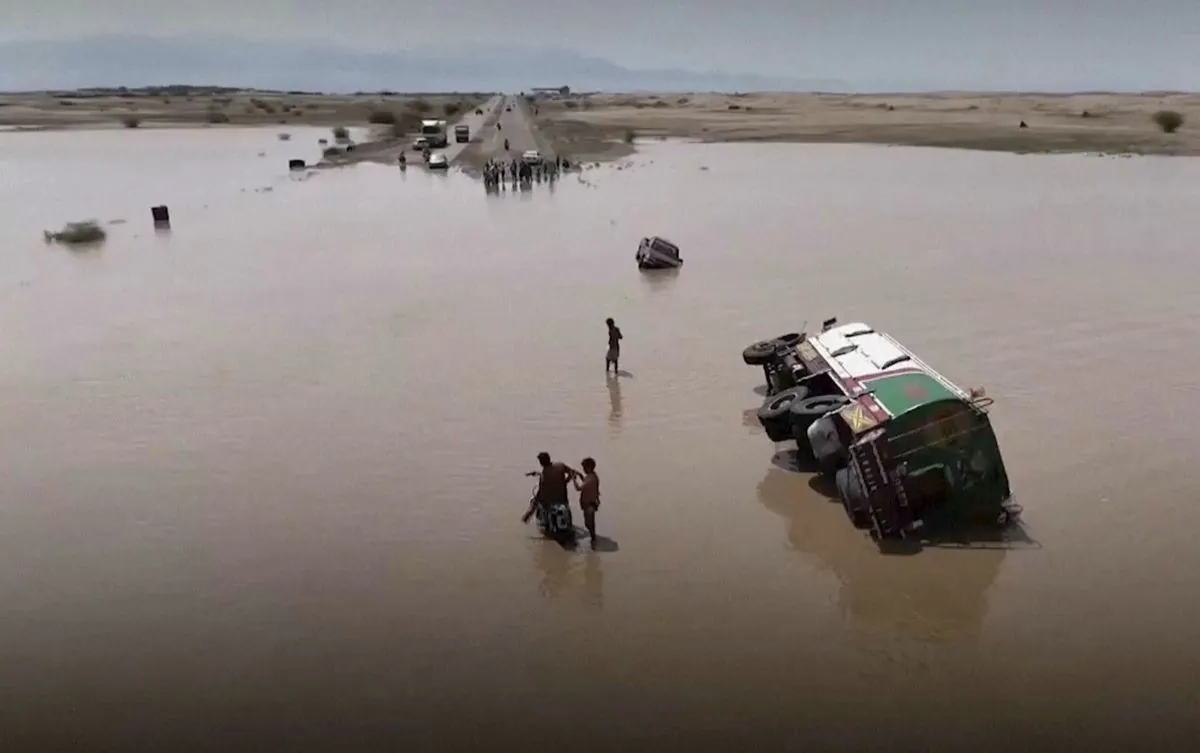In a devastating turn of events, the Melhan district of Al-Mahwit province in northern Yemen has been struck by severe flooding, resulting in significant loss of life and widespread destruction. The disaster, which began on 2024-08-27, has further exacerbated the humanitarian crisis in a country already grappling with the effects of a prolonged civil war and extreme poverty.
According to Ali al-Zikam, secretary-general of the local council of Al-Mahwit province, the floods have claimed at least 33 lives and caused extensive damage to property. The official reported that 28 houses were completely destroyed, while over 200 others sustained structural damage. Additionally, five vehicles were swept away by the raging waters, and several individuals remain unaccounted for.
The Yemen Red Crescent has intensified its efforts to locate the missing persons, with 38 individuals still unaccounted for as of 2024-08-29. The organization emphasized the severity of the situation, stating, "The magnitude of the disaster in al-Mahwit is substantial."
This catastrophe adds to the myriad challenges faced by Yemen, which has been embroiled in a civil war since 2014. The conflict erupted when the Iran-backed Houthis seized control of the capital, Sanaa, and much of the country's north, forcing the internationally recognized government into exile. As the poorest country in the Middle East, Yemen's ability to respond to natural disasters is severely limited.
The recent floods are part of Yemen's monsoon season, which began in mid-July 2024. The Houthi authorities reported that flooding has affected over 33,000 families across the country, with 86 fatalities in the southern city of Hodeida, Reema, and Hajjah provinces.
Yemen's unique geography, characterized by desert plains and rugged mountains, contributes to its vulnerability to flash floods. The country's water scarcity issues, coupled with one of the world's highest birth rates, further complicate disaster response efforts.
Despite its current hardships, Yemen boasts a rich historical and cultural heritage. The country was home to the ancient kingdom of Saba (Sheba) and was the birthplace of coffee cultivation. The island of Socotra, known for its unique biodiversity, stands as a testament to Yemen's natural wonders.
As Yemen grapples with this latest disaster, the international community's support becomes increasingly crucial. The country's heavy dependence on oil exports and the ongoing civil war have severely impacted its economy and infrastructure, making recovery from natural disasters even more challenging.
The floods in Melhan district serve as a stark reminder of the urgent need for comprehensive disaster preparedness and response mechanisms in Yemen. As the search for missing persons continues and affected communities begin the process of rebuilding, the resilience of the Yemeni people is once again put to the test in the face of overwhelming adversity.
